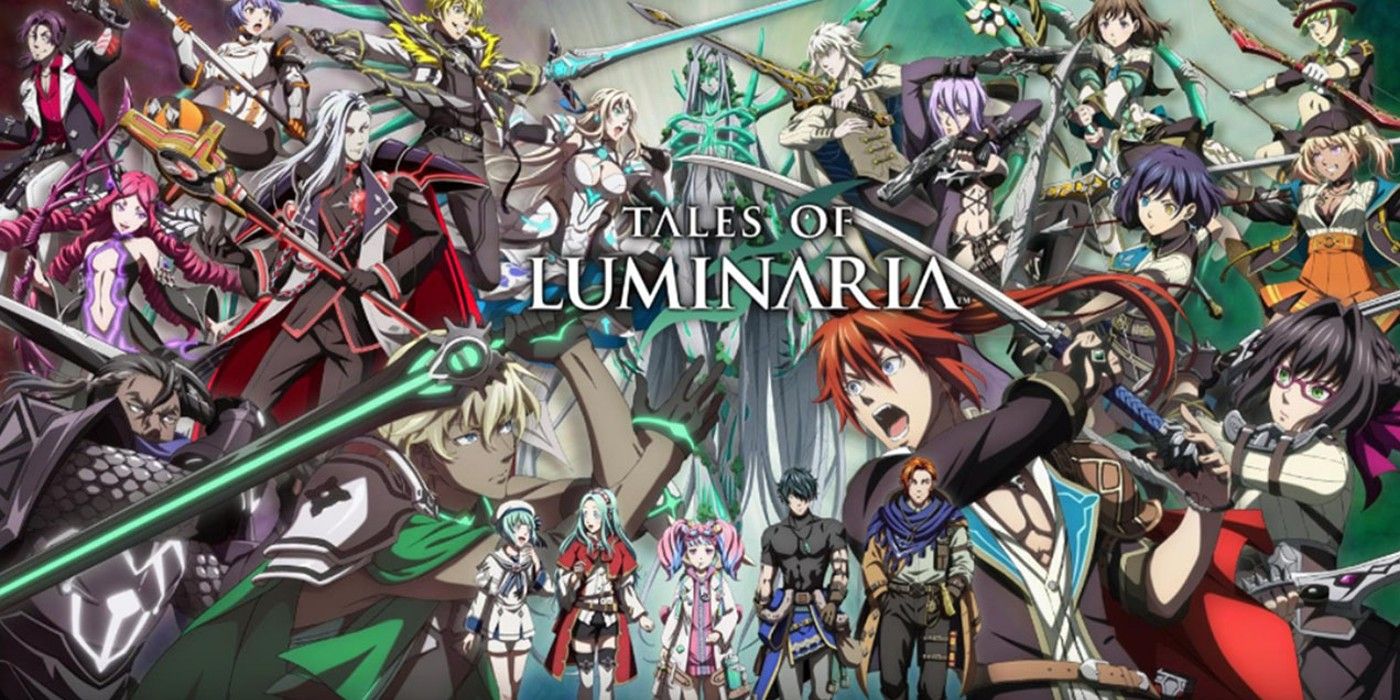The Bandai Namco Tales series is among the best-selling Japanese RPG series, and its latest entry, Tales of Arise, was among the series’ most successful sequels in years, but that success has not translated to the Tales mobile games. The latest mobile Tales game, Tales of Luminaria, launched in November 2020, and roughly six months later it was announced that the game will close in July 2022. This approximately eight-month period constitutes the shortest lifespan of any of the series’ mobile titles, but Luminaria was not the first to be canceled quickly. Its predecessor, Tales of Crestoria, was active from July 2020 to February 2022, about a year and a half, and prior to that Tales of the Rays lasted a little over a year. Although Tales of Arise was among 2021’s best RPGs, Tales may be a series that simply does not translate well to the mobile format.
Some would argue Bandai Namco needs to give individual Tales mobile titles more time to find their footing, but history suggests mobile Tales games might simply be doomed to fail. Tales of Link, which preceded Rays, had more longevity, with about four years active in Japan and two years in the North American market. The economics of free-to-play mobile games certainly differ from paid game releases for PC and console. Continual updates and events are expected to maintain interest, but if a game is not profitable there is little incentive to put resources behind updating it. While some PC MMORPGs that officially close maintain accessibility through private servers, a closed mobile MMO is simply gone. Tales is not the only popular JRPG franchise that has had trouble adapting to the mobile space; even Dragon Quest of the Stars closed one year after its launch.
The format of Tales games might be an inherently poor fit for a free-to-play mobile title. Where JRPGs like Final Fantasy and Shin Megami Tensei have roots in turn-based gameplay, Tales has always been an action RPG series. The original Tales of Phantasia for the Super Famicom combined RPG mechanics like experience points, leveling up, and managing equipment, with battles that play out as real-time combat on a 2D plane. There have been a plethora of Final Fantasy mobile titles, some of which have lasted longer than others, but broadly speaking that series has fared better in its mobile entries than Tales has.
Tales Of Luminaria's Anime Did Not Bring Closure To A Story Cut Short
Tales was closely linked with Star Ocean, sharing a few of the same developers. Star Ocean began as a similar SNES-era JRPG franchise that featured similar battles on a 3D plane. Star Ocean’s own entry into mobile gaming, Anamnesis, also had a short lifespan in the West. The next console entry in that series, Star Ocean: The Divine Force, is releasing soon, and like Tales of Arise, that storied Japanese action RPG series may have better fortune with its console titles. The expectations of mobile games, particularly free-to-play mobile games, differ considerably from single-player console games, or even console and PC MMORPGs. It is possible that Final Fantasy is simply a big enough brand, particularly in the West, that it translates to mobile success in a way other JRPGs cannot.
Bandai Namco has tried different approaches and gimmicks to making a successful Tales mobile game. Luminaria switched to a vertical format, one that lends itself to mobile play as opposed to using an Android or Apple tablet device. It also attempted an ambitious episodic story format, with sequential episodes of gameplay from the perspectives of more than a dozen characters. The story's premise involved following heroes on both sides of a war within a fantasy setting, not unlike the Trails of Cold Steel series. Prior mobile Tales games like Crestoria relied on crossover characters from older Tales games. Many mobile MMORPGs rely on crossover content; even the single-player console title Tales of Arise had Sword Art crossover DLC. Luminaria focused instead on its own emerging original story and original characters. It was an admirable premise, but thanks to the game’s early cancellation the unfolding story of Luminaria will remain forever unfinished.
The two-episode anime adaptation of Tales of Luminaria, titled The Fateful Crossroad, provided an enjoyable spectacle for fans who enjoyed the world and characters of the short-lived mobile game, but it did not provide closure to the story. The success of Tales of Arise gives Bandai Namco a template for future console games in the series, but when it comes to mobile Tales games, it might be time to back off from the free-to-play format and consider some ports of console classics as an alternative.


